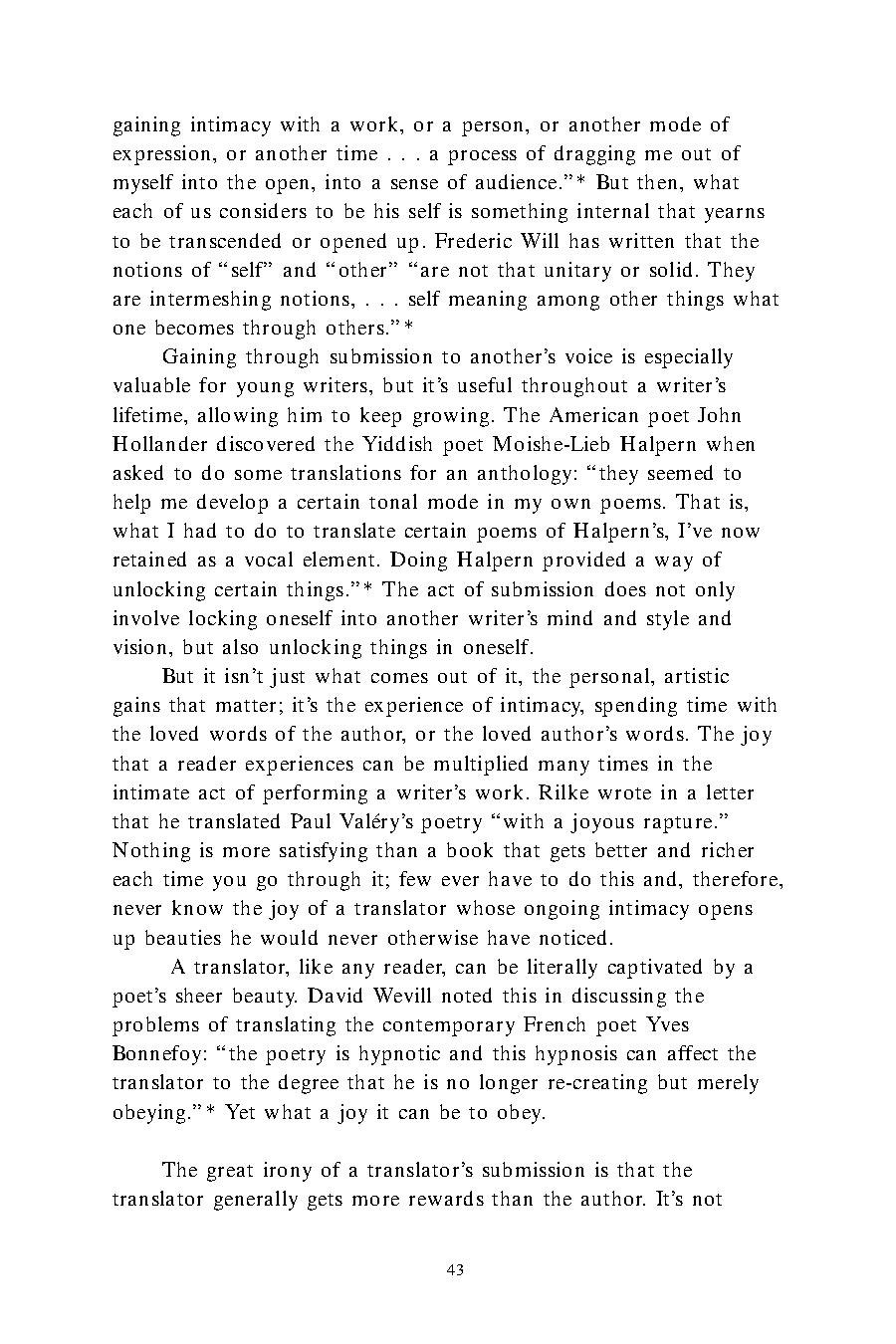gaining intimacy with a work, or a person, or another mode of expression, or another time . . . a process of dragging me out of myself into the open, into a sense of audience.”* But then, what each of us considers to be his self is something internal that yearns to be transcended or opened up. Frederic Will has written that the notions of “self” and “other” “are not that unitary or solid. They are intermeshing notions, . . . self meaning among other things what one becomes through others.”*
Gaining through submission to another’s voice is especially valuable for young writers, but it’s useful throughout a writer’s lifetime, allowing him to keep growing. The American poet John Hollander discovered the Yiddish poet Moishe-Lieb Halpern when asked to do some translations for an anthology: “they seemed to help me develop a certain tonal mode in my own poems. That is, what I had to do to translate certain poems of Halpern’s, I’ve now retained as a vocal element. Doing Halpern provided a way of unlocking certain things.”* The act of submission does not only involve locking oneself into another writer’s mind and style and vision, but also unlocking things in oneself.
But it isn’t just what comes out of it, the personal, artistic gains that matter; it’s the experience of intimacy, spending time with the loved words of the author, or the loved author’s words. The joy that a reader experiences can be multiplied many times in the intimate act of performing a writer’s work. Rilke wrote in a letter that he translated Paul Valéry’s poetry “with a joyous rapture.” Nothing is more satisfying than a book that gets better and richer each time you go through it; few ever have to do this and, therefore, never know the joy of a translator whose ongoing intimacy opens up beauties he would never otherwise have noticed.
A translator, like any reader, can be literally captivated by a poet’s sheer beauty. David Wevill noted this in discussing the problems of translating the contemporary French poet Yves Bonnefoy: “the poetry is hypnotic and this hypnosis can affect the translator to the degree that he is no longer re-creating but merely obeying.”* Yet what a joy it can be to obey.
The great irony of a translator’s submission is that the translator generally gets more rewards than the author. It’s not
43
